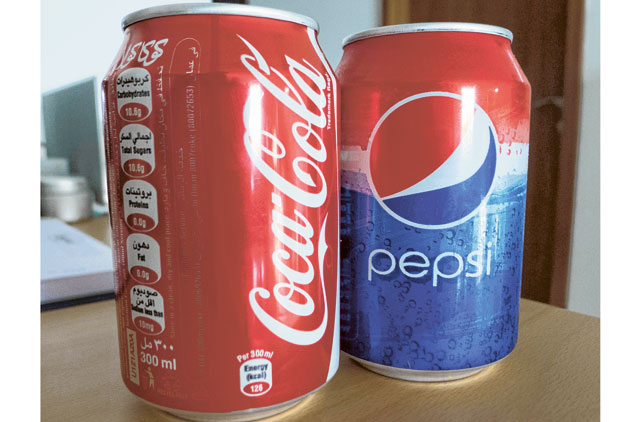Abu Dhabi: To curb the spread of obesity in the UAE, health regulators are currently discussing the implementation of front-of-pack labelling for pre-packaged foods, as well as a 20 per cent decrease in the sugar content of food products.
The initiatives are part of a 12-point strategy developed by the Abu Dhabi Department of Health (DoH) to combat childhood obesity, and the hope is that the measures will be adopted across the country, Dr Jamal Al Mutawa, manager for community health and surveillance at the department, told Gulf News in the capital on Thursday.
“Our records showed a concerning increase in childhood obesity in the emirate of Abu Dhabi between 2010 and 2015. In fact, the proportion of children carrying excess weight increases steadily through the grades, with up to nearly 40 per cent of all children enrolled in Grade 8 being overweight or obese. This is why a task force was launched in 2016 to look for solutions against obesity,” Dr Al Mutawa said.
“Internationally, we have seen the effectiveness of front-of-pack labelling towards helping people make healthier food choices, and know that it would also be helpful to reduce the sugar content of food products. While such regulations may take a while to be refined and implemented, the important thing is that the discussion has begun,” he added.
The DoH’s strategy also includes targets like ensuring that children get at least an hour of physical activity every day, and measures to prevent the marketing of unhealthy foods among young people.
Dr Al Mutawa was speaking on the sidelines of the Gulf Obesity Summit and Regional Congress 2018, a two-day meeting in which health professionals and regulators are sharing their experiences, with the aim of reducing the prevalence of obesity in the region.
Experts at the conference highlighted that the obesity epidemic has reached crisis proportions in many countries. In fact, more than 1.9 billion adults and 381 million children around the world are known to be either overweight or obese. In the UAE, the prevalence of children carrying excess weight is double the global prevalence, with one in every three schoolchildren either overweight or obese at present.
Explaining the measures discussed by the DoH, Dr Al Mutawa said the initiative to decrease sugar content in food products would reduce added sugar.
“The plan is to have food producers gradually reduce sugar content over a period of four years after implementation. In the UAE, we have already seen taxes implemented on sugary drinks last year, and a decrease in sugar within other foods would further complement these taxes in helping people consume healthier foods,” he said.
On the other hand, front-of-pack labelling would help consumers make healthier food choices.
“Typically, people often do not have the time to peruse food labels when shopping. These front-of-pack labels provide quick information on how healthy a product is, and are recommended by the World Health Organisation as effective measures to encourage healthier food choices,” Dr Al Mutawa said.
For instance, the United Kingdom uses a traffic light labelling scheme, with a green light indicating that an item is a healthy choice. The DoH launched a similar labelling scheme in 2017 for packaged bakery and dairy products, as well as for dishes served in restaurants.
The Weqaya voluntary certification scheme places a green-and-blue Weqaya logo next to healthy food items. While 30 entities have adopted the logo so far, including national flag carrier Etihad Airways, the uptake is still limited.
“We are ready to support caterers and restaurants, and the adoption of this scheme is free of charge for them, including an analysis of menu items and even training for restaurant staff. So we would like to see more food producers come forward to support the fight against obesity,” said Dr Lamees Abu Hlaiqa, section head for chronic conditions at the DoH.
Obesity strongly linked to Type 2 diabetes
It is well known that obesity is a risk factor for Type 2 diabetes — which affects a whopping 19 per cent of adults in the UAE between the ages of 20 and 79 years — and a recent study has confirmed the link between the two conditions among Emiratis.
An analysis of 966 Emirati patients showed that the prevalence of Type 2 diabetes increased by 6.5 times among obese men, and by 9.4 times among obese women, said Budoor Al Kaf, researcher at the Imperial College London Diabetes Centre.
In a presentation at the Gulf Obesity Summit and Regional Congress 2018, Al Kaf also highlighted that people with Type 2 diabetes tended to pursue less physical activity, even though there was no significant increase in Type 2 diabetes prevalence as a result of decreased physical activity.
Obesity in numbers
Around the world
1.9 billion adults are either overweight or obese
650 million adults are obese
381 million children are either overweight or obese
41 million children under the age of five years carry excess weight
60-90% of parents with children who carry excess weight do not know that their children are overweight or obese
In the UAE
1 in 3 children carries excess weight
17% of schoolchildren are obese
66% of adults carry excess weight













